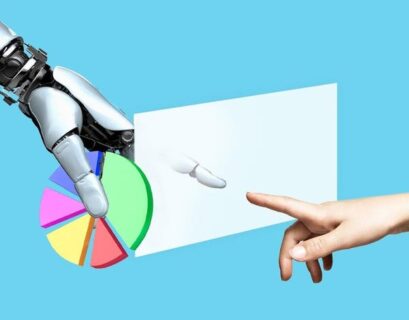In the midst of interviewing professional experts in artificial intelligence ethics, I found myself engaged in lengthy and winding philosophical discussions. Initially, this departure from the usual straightforward interviews for my column left me slightly bemused.
Upon reflection, I couldn’t help but find the situation somewhat amusing. What else could one expect when conversing with individuals whose expertise lies in profound inquiry?
Morgan Sutherland’s upbringing on Nantucket Island, Massachusetts, instilled in him a desire for a broader and more significant pursuit beyond the confines of a small-town environment. This quest led him to the intersection of philosophy, psychology, art, technology, and history. By amalgamating these disciplines, the natural progression led to the exploration of the burgeoning field of artificial intelligence.
After a decade of networking, freelance work, consulting, and interdisciplinary exploration, Sutherland secured a six-month project with OpenAI. This opportunity involved direct collaboration with OpenAI’s leadership, focusing on refining AI models for sentence completion and addressing value conflicts to foster a positive impact on humanity.
It became evident that the term “AI ethicist” does not fully encompass the multifaceted nature of this profession that I was eager to delve into.
Instead, there exist three key domains to understand — AI ethics, AI safety, and AI alignment. Each of these subfields attracts individuals with distinct backgrounds and ideological perspectives. For instance, professionals in AI ethics typically hail from humanities backgrounds and concentrate on issues related to diversity, accessibility, and socio-economic politics, while AI safety experts delve into the structural and psychosocial risks associated with human interactions with AI technology at a larger scale.
With a keen eye for observation, Sutherland delineated the anthropological landscape of these distinct groups. “These are not just fields; they are scenes. There are communities within AI safety, and they interact closely, sharing common knowledge and literature.”
One might be tempted to envision a scenario of intellectual elites congregating in the northwest United States, gathering in high-rise gardens for intellectual discussions and debating over the potential risks posed by various tech startups.
The overarching mission of OpenAI is “to ensure that artificial general intelligence—AI systems that surpass human intelligence—benefits all of humanity.”
At this juncture, the technological advancements we are witnessing verge on the realms of science fiction.
Major corporations in our global economy are orchestrating groundbreaking developments akin to godlike creations. There is an increasing demand for individuals who possess a balanced perspective, extensive knowledge, and ethical acumen to guide these companies in a direction that serves the greater good — albeit the definition of “good” itself is highly subjective.
While the role of an ethicist involves a significant degree of personal creativity, the practicalities of the workplace remain. Even in the capacity of an ethicist within a company, one is still part of an organization that necessitates an understanding of brand positioning and corporate culture.
Sutherland highlighted the complexity of this paradigm, emphasizing the importance of aligning with supportive colleagues for research and effectively collaborating with company-specific editors.
Furthermore, ethical dilemmas not only intertwine various schools of thought but also vary in priority across different companies. Prior to committing to a role, thorough research on the values and principles of the prospective employer is recommended, as two ethicists may have markedly different responsibilities based on their organizational context.
On a lighter note, amidst the dynamic job market landscape, I’ve come to realize that engaging in debates on prevalent issues such as the nature of evil, artistic quality, realism versus idealism, financial dynamics, corporate ethics, psychedelic subcultures, and more can pave the way for a fulfilling career.
The prospect of delving into this evolving future energizes me and motivates me to write. In times of uncertainty, I foresee a significant shift in our perceptions of value and priorities.
Sutherland acknowledges the rapid pace of the industry but advises against interpreting it as disempowering. He underscores the potential for individual brilliance to shape the course of history. The power to effect change lies within our grasp.
Victoria Frank, a junior writer focusing on ethics and well-being in the realm of AI, pens her column “Natural Intelligence” every other Friday.









